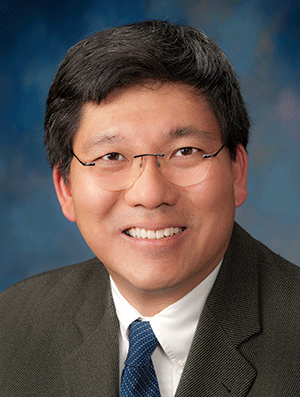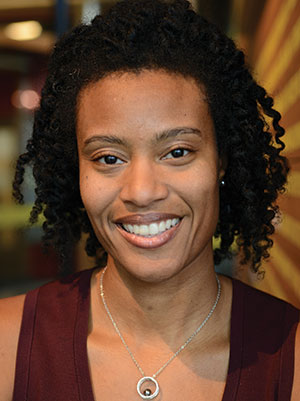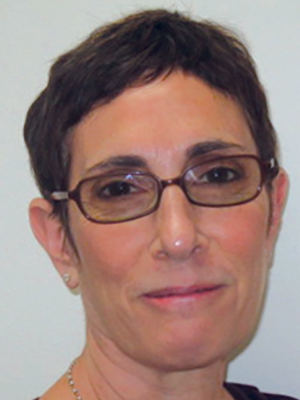My mother will soon start chemotherapy. She uses Chinese medicines. Should she stop taking them?

Edward Chu Professor of Medicine and Professor of Pharmacology & Chemical Biology, Chief of the Division of Hematology/Oncology and Deputy Director of the University of Pittsburgh Cancer Institute. Photo courtesy of Edward Chu
EDWARD CHU: The assumption has been that Chinese and other herbal medicines and nutritional supplements are completely safe and will not have any adverse effects when used along with chemotherapy or prescription medications. But as we’ve learned more over the past few years, we’ve realized that these herbal medications may have side effects. Yet their use is quite common. Surveys have shown that up to 50 percent of cancer patients are taking some kind of Chinese herbal medicine or supplement.
The specific type of cancer and the specific type of drug being used is the first issue that needs to be considered. In terms of adverse drug reactions, we’re now finding out that many herbs can alter how certain chemotherapy drugs are metabolized, reducing their effectiveness.
Perfect example: Green tea has been shown to alter how Velcade (bortezomib), which is used to treat multiple myeloma and mantle cell lymphoma, is metabolized, reducing its effectiveness. St. John’s wort (Guan Ye Lian Qiao), which is used [in the U.S. and Europe] to treat depression [and by Chinese health practitioners to treat infections and inflammatory conditions], can decrease the effectiveness of the chemotherapy drug Camptosar (irinotecan), which is used to treat colorectal cancer. Black cohosh is used to treat PMS and studies [in mice] showed that it might interfere with drugs used to treat breast cancer.
These interactions may be just the tip of the iceberg. As more formalized, rigorous studies are done, I think we are appreciating that there can be harm in taking these herbals with standard chemotherapy. Cancer patients should check whether any clinical studies have been done on the herb they are using and speak to their oncologist before taking herbal supplements. And the herbs should certainly be stopped if the patient is taking any kind of experimental therapy.
It’s likely that no studies have been done on the herbs your mother is taking with the chemotherapy drug that’s being recommended for her cancer. So, in my view, the risks outweigh any potential benefits. I would tell your mother the safest route she can take is to stop taking Chinese medicines while she’s undergoing chemotherapy.
Chinese Medicine & Cancer // The American Cancer Society provides an overview of cancer and herbal medicine. // Medline Plus includes information on herbal remedies and their effectiveness, dosage and known drug interactions. // Memorial Sloan-Kettering Cancer Center has a searchable database of herbs, botanicals and other products.
How will the Affordable Care Act (ACA) affect health insurance for cancer patients like me and high-risk patients like my daughter?

Loyce Pace Bass Director of Health Policy for the Austin, Texas–based Livestrong Foundation. Photo courtesy of the Livestrong Foundation
LOYCE PACE BASS: The ACA requires that states set up marketplaces for people who won’t already be receiving such benefits through a qualifying employer to purchase health insurance. These markets, which must be up and running by Jan. 1, 2014, will vary from state to state. In terms of your daughter, one provision of the law that already has gone into effect allows young adults to stay on their parents’ plans until age 26. Also, children in low-income families may qualify for the Children’s Health Insurance Program.
When the ACA goes fully into effect in 2014, insurers will not be able to deny coverage to adults with a pre-existing condition, like cancer. [The portion of the law that covers children with pre-existing conditions is already in effect.] This means cancer patients and survivors will be able to disclose their medical histories, since it won’t keep them from being able to buy insurance. The ACA also prohibits insurers from dropping a person from an insurance plan because of a cancer diagnosis or charging more for coverage of people with pre-existing conditions. We will have to see as the plans roll out how much they will cost. Right now, advocates are fighting for the costs to be contained.
Another issue is prescription drug coverage. It’s not yet clear that the insurance models being considered at the state level will contain costs for someone who requires multiple prescription drugs over the course of his or her treatment. Insurers and regulators have recommended considerable cost-sharing, but advocates are concerned this places an undue burden on cancer patients, who often require myriad treatments, not all of which qualify for discounts under the current proposals. Oftentimes it’s the cost of medications and in-patient treatments that drives people into bankruptcy.
Importantly, there also are no longer going to be arbitrary limits on insurance plans. In the past, children diagnosed with cancer might use up their benefits. Under the ACA, you shouldn’t have that problem.
The new plans should also cover the costs associated with being in a clinical trial. In addition, insurers will be prohibited from dropping or limiting coverage for an individual who enrolls in a clinical trial.
Affordable Care Act Resources // The U.S. Department of Health & Human Services provides information about the ACA. // Livestrong helps cancer patients applying for federal and state health care programs. // The Centers for Medicare and Medicaid Services provides information about Medicare under the ACA.
My 7-year-old was diagnosed with leukemia. What should I do before she returns to school?

Sara Goldberger Senior Director of Program at Cancer Support Community in Washington, D.C.
SARA GOLDBERGER: It’s important to listen to your child’s wishes. You should ask your child who he or she wants to know about the cancer and how much your child wants them to know. Set up a meeting with teachers, the school counselor and school nurse to discuss the diagnosis, when your child will return to school, and what they should do if your child will continue to go to school while getting treatment. It’s important that you provide the school with up-to-date information on the medical status of your child and any changes in how the child’s school day is approached, as there may be a need for an IEP [Individualized Education Program]. It’s also important to set up regular check-ins because your child’s way of wanting to handle things may change.
When your child is well enough to go back to school, there may be concerns about exposure to germs. You could ask the nurse to explain to the class the importance of hand washing, throwing away used tissues, and covering one’s mouth while coughing. You should pay attention to what’s going on socially for your child as well. Some kids don’t want to talk about their cancer in school. They may see school as the comfortable, safe place where they don’t have to be the kid with cancer. It goes back to what your child’s wishes are and communicating them to the school.
You or the school counselor could arrange for someone to come to the school to provide age-appropriate information about cancer and how it’s treated, and what side effects—hair falling out, feeling extra tired—your child may have. They can also engage kids experientially: How would you feel if this happened to you? The school counselor can also offer suggestions, such as: I’d want someone to bring me ice cream every day. I’d want someone to ask, “Are you OK?” This gives children ideas about what works.
You could explain that routines and limits can help your child to have a sense of normalcy. Anyone who has a cancer diagnosis feels loss of control and loss of normalcy. School can be a place where your child can find this again. It’s also important to set limits: Just because you have cancer doesn’t mean you don’t have to do your homework.
Some people will see this as a private family matter. Others will really want the community to know to get as much help as they can. You will need to find your voice and speak up for what your child and your family want.
Support for Families // Cancer Support Community helps families dealing with the disease. // The Leukemia & Lymphoma Society can help families connect with one another. // CureSearch for Children’s Cancer offers checklists for preparing for a child’s return to school.
Cancer Today magazine is free to cancer patients, survivors and caregivers who live in the U.S. Subscribe here to receive four issues per year.




